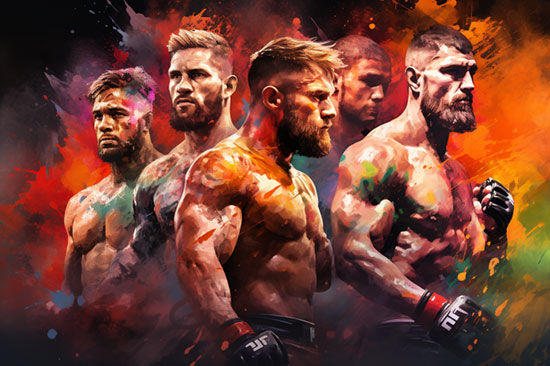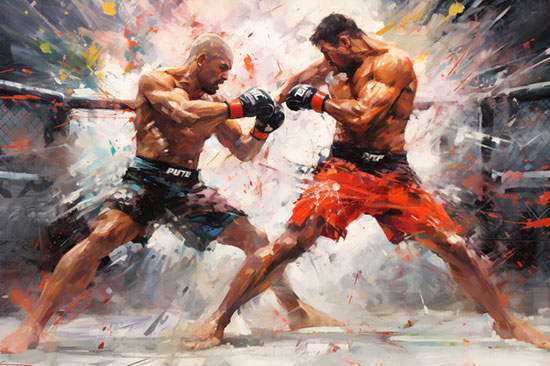Ultimate Fighting Championship (UFC) has gained popularity over the last few years.
Contents
Understanding UFC Structure
To understand why UFC doesn’t have a regular season, we should, first, understand its structure.
Fighter Rankings
The UFC rankings are based on a fighter’s performance and win within their respective weight divisions.
These rankings are updated after every event, with fighters moving up or down based on their recent performance.
Fight Cards
UFC events are organized into fight cards, which are a series of matches scheduled for a specific date.
A fight card typically consists of a main event, a co-main event, and several undercard bouts.
Fight Nights and Main Events
UFC events can be categorized into three main types:
UFC Fight Night
These are smaller events, usually featuring up-and-coming fighters or those looking to bounce back after a loss. They typically air on television or streaming platforms and are held more frequently.
UFC on ESPN
UFC on ESPN events are broadcast on the ESPN network and feature more high-profile fighters than Fight Night events.
Pay-per-view Events
These events are the most significant in the UFC, featuring title fights and top-ranked fighters. They’re held less frequently and require fans to purchase access to watch the event.
UFC Championships and Title Fights
There is no specific time of the year designated for championship fights. Title fights are scheduled based on various factors, such as the champion’s availability, the challenger’s performance, and the overall demand for the matchup.
How Fighters Get Matched in UFC
UFC matchmakers, led by Sean Shelby and Mick Maynard, are responsible for putting together the fight cards.
They consider factors like fighter rankings, recent performance, and fan interest to create compelling matchups.
UFC vs. Traditional Sports Leagues: The Season Difference
Unlike traditional sports leagues, the UFC does not have a regular season, playoffs, or championship series.
Instead, UFC events are held year-round, with no predetermined schedule for title fights or specific matchups.
Benefits of the UFC’s Flexible Schedule
The UFC’s flexible structure offers several benefits:
Increased fan engagement: With events happening year-round, fans can stay engaged and excited about upcoming fights.
Fighter freedom: Fighters can choose when to compete, allowing them to recover from injuries or train at their own pace.
Promotional flexibility: UFC can respond to fan interest and schedule high-demand fights quickly.
Drawbacks of the UFC’s Current Structure
Despite the advantages, the UFC’s structure also has some drawbacks:
Lack of clarity: With no defined season, it can be challenging for casual fans to follow the sport and understand its structure.
Fighter inconsistency: Fighters may have long periods without competing, which can lead to a loss of momentum or skill deterioration.
Potential for rushed matchups: The flexible schedule can sometimes result in fighters taking bouts on short notice, leading to less-than-optimal performances.
Comparing UFC to Other MMA Organizations
Other mixed martial arts (MMA) organizations, such as Bellator and ONE Championship, have similar structures to the UFC, with events happening throughout the year.
However, some organizations, like the Professional Fighters League (PFL), have adopted a seasonal format that includes a regular season, playoffs, and championships.
The Future of UFC and Its Structure
The UFC’s current structure has been successful in generating interest and revenue, so it’s unlikely to change significantly in the near future.
However, as the sport continues to evolve, it’s possible that the organization may explore new formats or structures to keep fans engaged and maintain its competitive edge.
Conclusion
In conclusion, the UFC does not have a regular season like traditional sports leagues. Its flexible structure allows for year-round events and enables fighters to compete when they choose.
While this format has its advantages, it also presents certain challenges. As the sport of MMA continues to grow, it will be interesting to see how the UFC adapts its structure to maintain its position as the premier MMA organization in the world.





